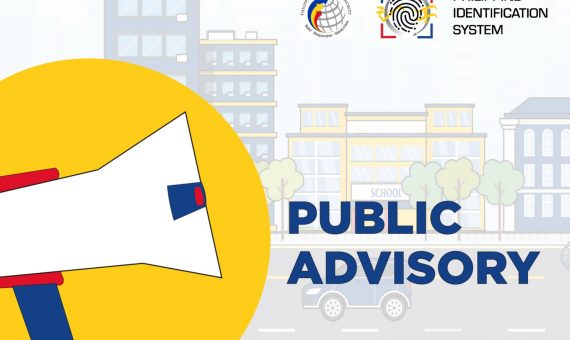29 May 2021
TO : ALL GOVERNMENT AGENCIES AND THE PUBLIC
THRU : CIVIL SERVICE COMMISSION
SUBJECT : Philippine Identification (PhiIID) Cards as the official proof of identity for transactions with government and private entities
DATE : 19 May 2021
Please be advised that as of 01 May 2021, the Philippines Statistics Authority (PSA) launched the third and final step of the Philippine Identification System (PhilSys) mass registration: distribution of Philippine Identification (PhiIID) cards and PhilSys Numbers (PSN) to successful registrants.
Under Republic Act No. 11055 or the Philippine Identification System Act,1 the PhilID card shall serve as the official government-issued identification document of cardholders in dealing with all national government agencies (NGAs), local government units (LGUs), government-owned or controlled corporations (GOCCs), government financial institutions (GFIs), State Universities and Colleges (SUCs), and all private sector entities. As such, the PhilID card shall be accepted as sufficient proof of identity, without the need to present any other identification documents.
To further stress the importance of the above-mentioned provisions, the Act penalizes any person or entity who without just and sufficient cause refuses to accept, acknowledge and/or recognize the PhilID card as the only official identification of the holder/possessor with a fine in the amount of Five hundred thousand pesos (PhP 500,000.00). Finally, if the violation is committed by government official or employee, the penalty shall include perpetual absolute disqualification from holding any public office or employment in the government, including any GOCCs, and their subsidiaries.
Please find in the attached Annex an illustration of the PhilID card and description of relevant security features, which can be used to determine its authenticity.
Furthermore, in line with the Government’s commitment to personal data protection, tokenization2 of the PSN has been adopted as a key privacy-by-design and security strategy of the PhilSys. To this end, please be advised that the permanent and irrevocable 12-digit PSN is microprinted on the back face of a registered person’s PhilID, which allows the registered person to retrieve their PSN when needed but also, importantly, to prevent others from being able to easily see or capture the PSN. A 16-digit PhilID Card Number (PCN) – essentially a public and replaceable token of the PSN that is valid for the life of the PhilID card – is printed conspicuously on the front face of the PhilID card, and is intended to be used for authentication purposes.
Registered persons are advised not to use their PSN for transactions but instead to use their PCN. Similarly, government agencies and private entities should not request or seed the PSN. The PhilSys will provide another form of token to be stored in databases of relying parties that are integrated with the PhilSys, subject to guidelines that will be issued by the PSA in the near future.
Digital authentication and e-KYC using fingerprint, iris, facial, SMS-based One Time Passwords or demographic verification will be launched by PSA towards the end of 2021. These PhilSys-enabled Services will allow identity to be verified even without the need for a physical PhilID, using the PCN or other tokens.
With this, all concerned government agencies, the private sector and the general public are advised that PhilIDs issued by the PSA shall be the official proof of identity of the cardholder in dealing with all NGAs, LGUs, GOCCs, government GFIs, SUCs, and all private sector entities.
For your information and guidance.
CLAIRE DENNIS S. MAPA, Ph.D.
Undersecretary
National Statistician and Civil Registrar General
1 Sections 6-7
2 Tokenization refers to the substitution of a sensitive data element (e.g. a permanent and unique identifier such as the PSN) by non-sensitive equivalents, i.e. a token (e.g. PCNs), that have no exploitable value by themselves and can be linked back to the sensitive data element when needed and revoked or rotated when needed.



